As a little girl, I remember sneaking into my mom's closet and trying on her high heels. Of course, they looked like oversized clown shoes on me (especially when paired with some ridiculous attempt at makeup), but I loved the feeling of confidence they gave me.
To this day, I still love the feeling of slipping into a pair of heels and feeling like I'm able to have more of a presence in a room.
That being said, I almost never wear heels, because they're just too darn uncomfortable.
On the rare occasion that I do step outside in something taller than flats, my feet start to hurt within minutes.
As I've gotten older, I've also started to notice that my feet are a different shape than they were when I was a kid — the joint of my big toe sticks out further than it used to.
Many women have this seemingly strange lump, but it's actually a fairly common issue: bunions.
Find out more about the symptoms of bunions below!
Thumbnail Photo: Instagram / @halluxval1 // Wikimedia / Michael Nebel
What Are Bunions?
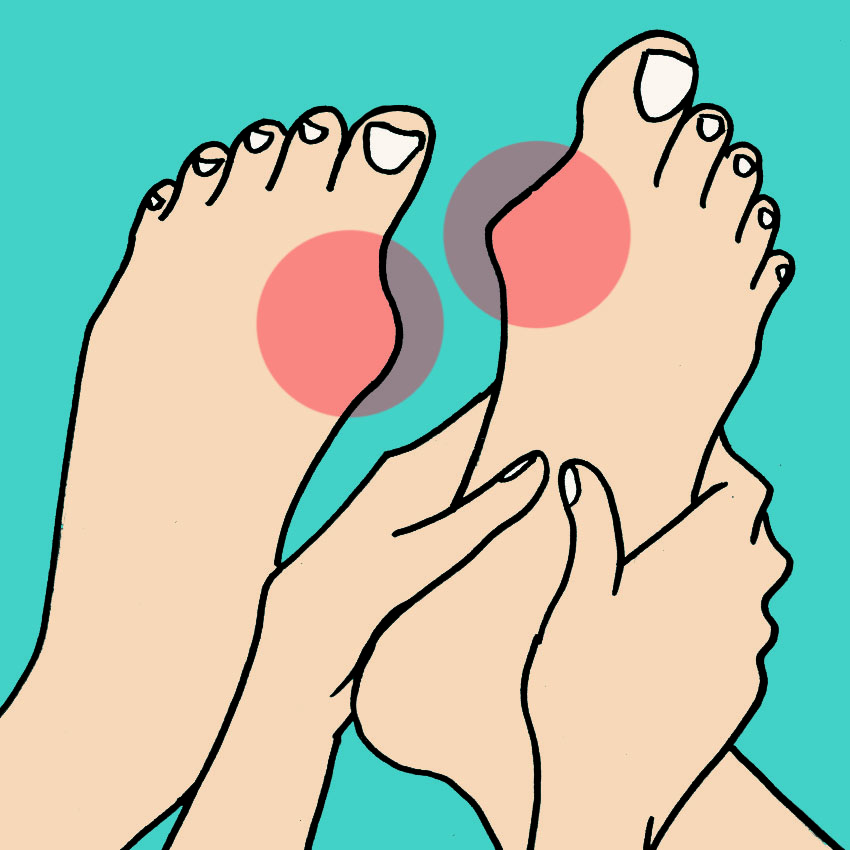
According to the American Academy of Orthopaedic Surgeons, "A bunion is a painful bony bump that develops on the inside of the foot at the big toe joint."
The Mayo Clinic explains that bunions "[form] when your big toe pushes against your next toe, forcing the joint of your big toe to get bigger and stick out."
Why Do People Get Bunions?
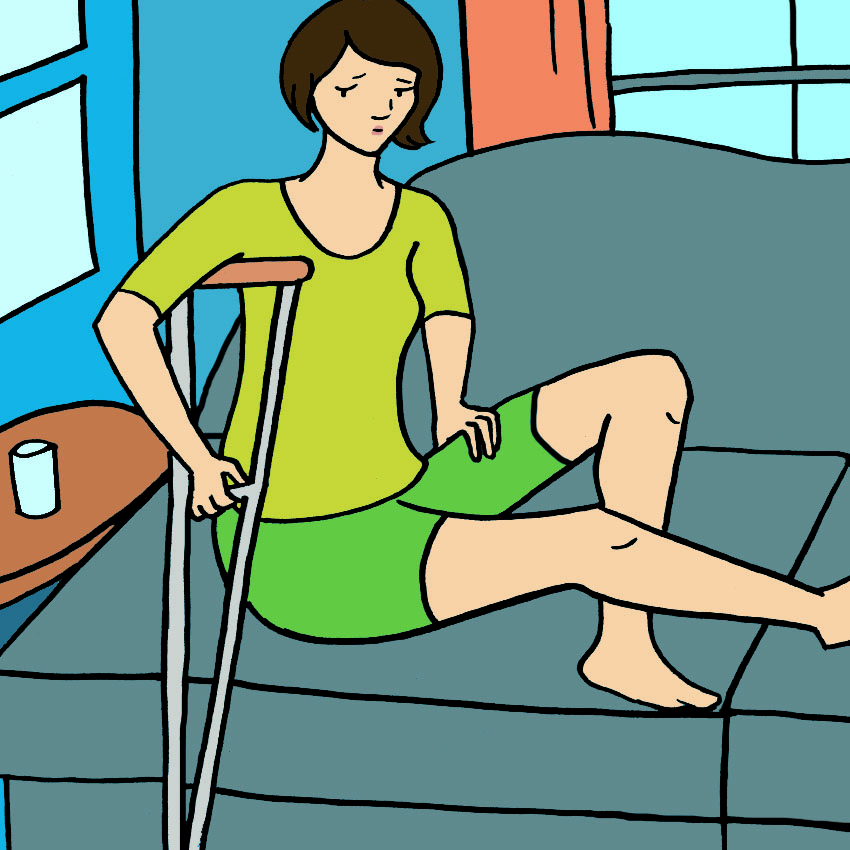
There are a few reasons bunions form. Some people inherit bunions from their parents, as a structural defect.
That said, you can also get bunions from stress on your foot, a medical condition, or wearing poorly fitting shoes — like ones that have narrow or pointed toes that force the toes into a weird position.
Symptoms Of Bunions Symptom #1: Bulging Bump
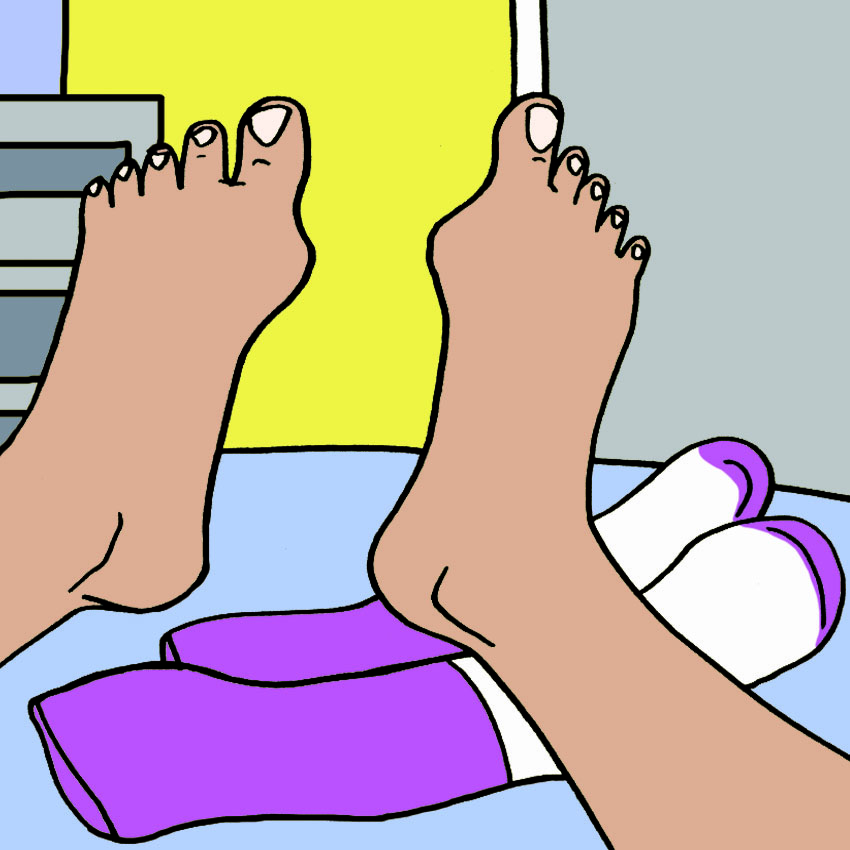
The most common sign of bunions is a noticeable "bulging bump outside the base of your big toe," explains the Mayo Clinic.
At the joint where your big toe meets your foot, there may be a lump sticking out.
Symptom #2: Soreness, Redness, And Swelling
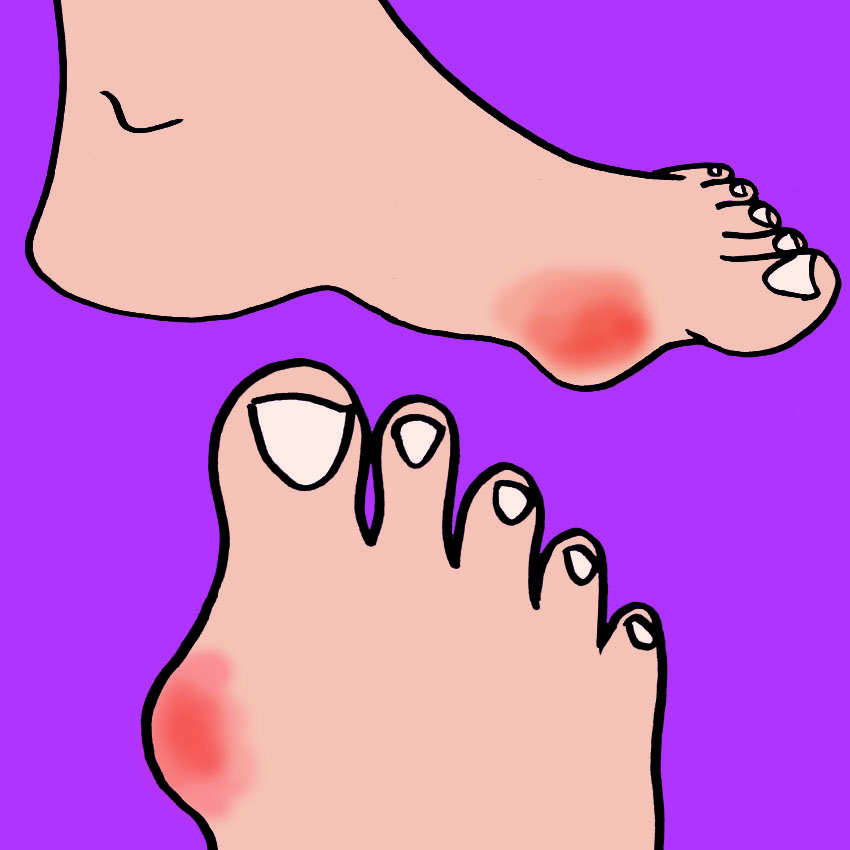
On the big toe joint, you also may notice soreness, redness, and swelling.
The bony bump on your foot might hurt from time to time because of the swelling and soreness.
Symptom #3: Corns And Calluses
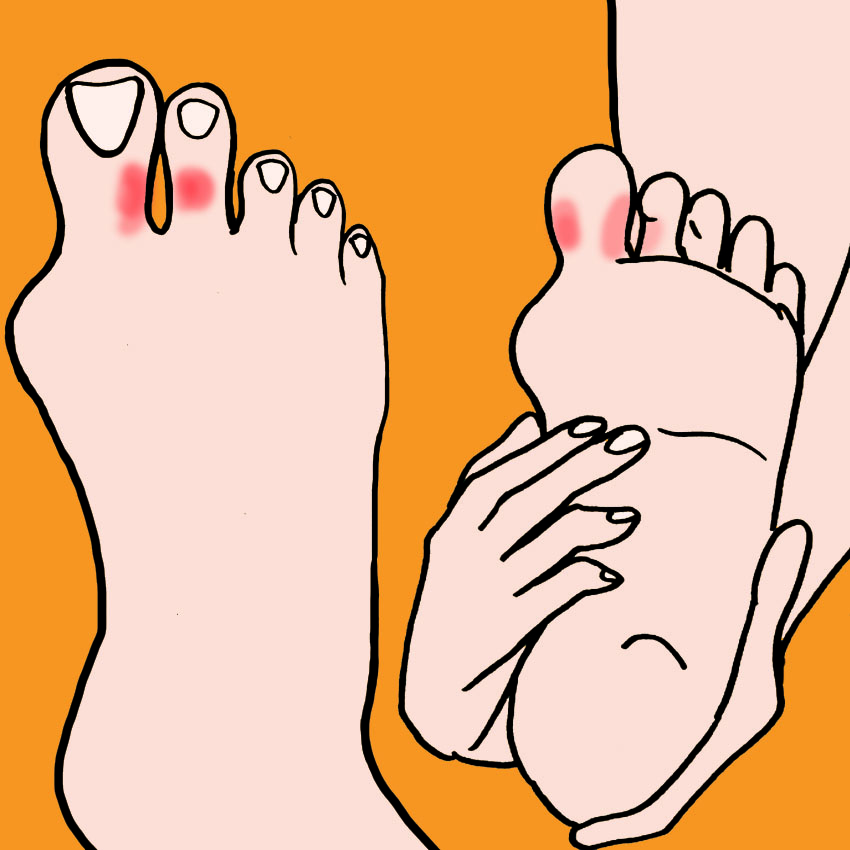
Other symptoms of bunions are corns and calluses. "These often develop where the first and second toes overlap," explains the Mayo Clinic.
Some people also notice a hardening of the skin on the bottom of the feet.
Symptom #4: Restricted Movement
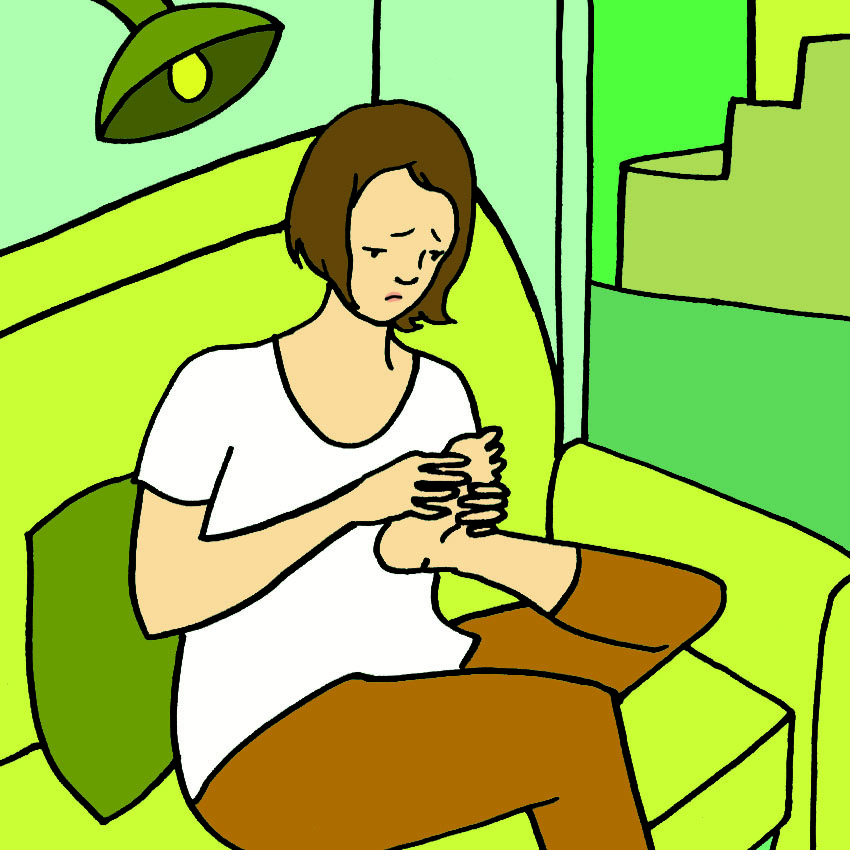
If the bunion becomes very uncomfortable, it may make walking and moving more difficult.
According to the American Academy of Orthopaedic Surgeons, "Stiffness and restricted motion in the big toe may lead to difficulty in walking."
Symptom #5: Persistent Pain
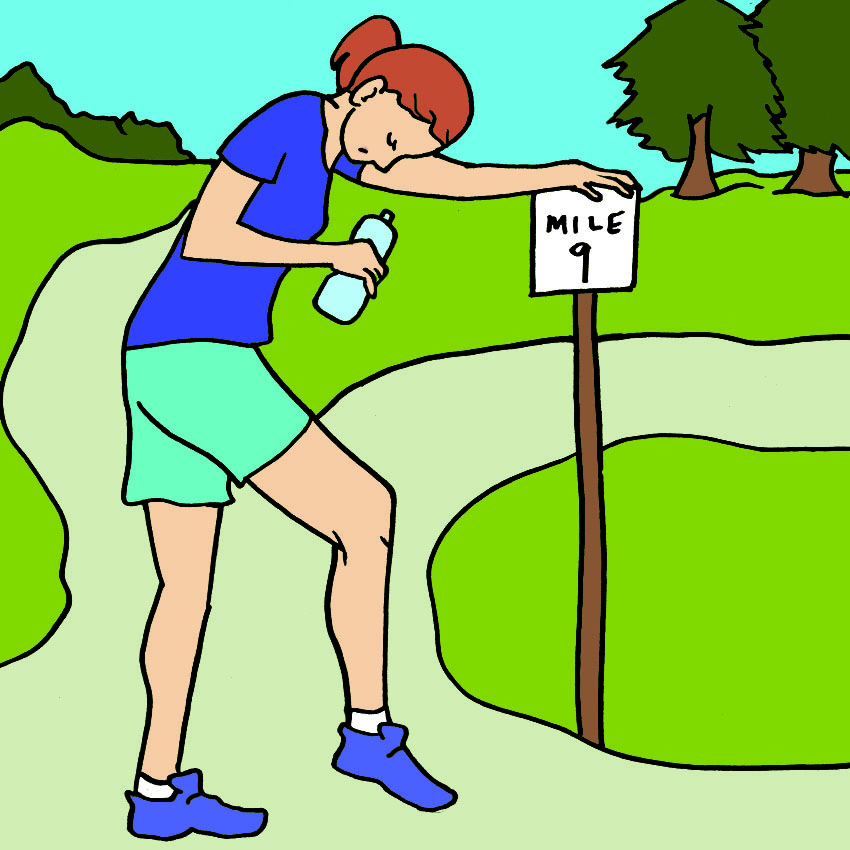
Some people with bunions may experience persistent discomfort and pain.
If the pain starts to interrupt your daily life, it may be time to go to a doctor.
How To Treat Bunions Yourself
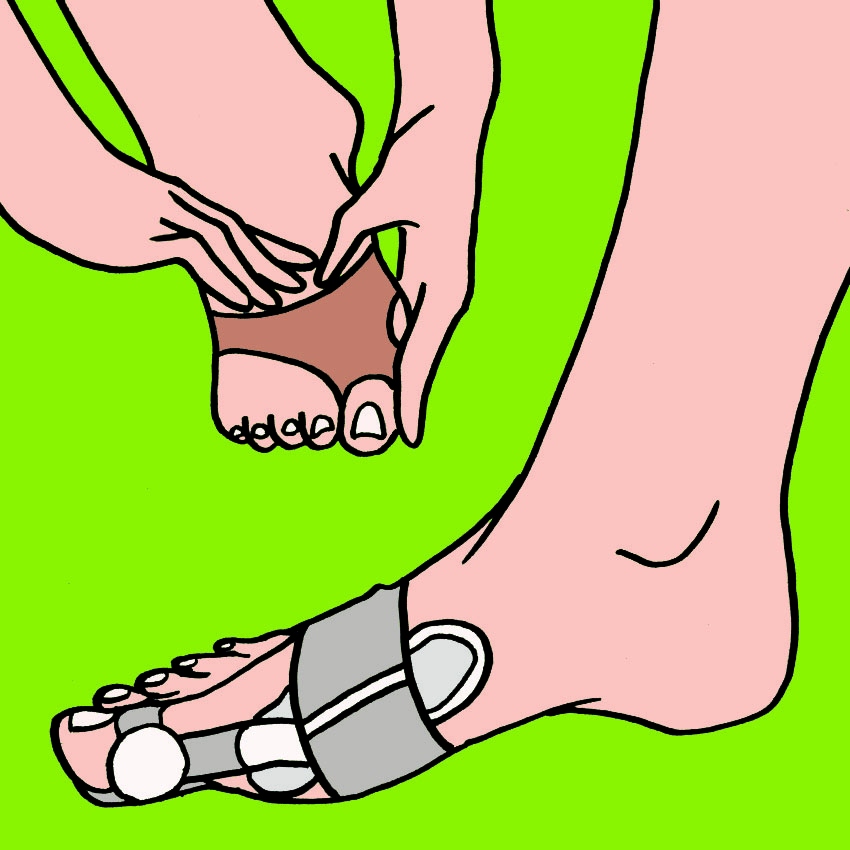
There are some very simple things you can do at home to treat bunions, including wearing roomier shoes, applying ice, or taking over the counter medications for pain.
You can also buy over the counter bunion pads, tapes, splints, or shoe inserts.
When To See A Doctor
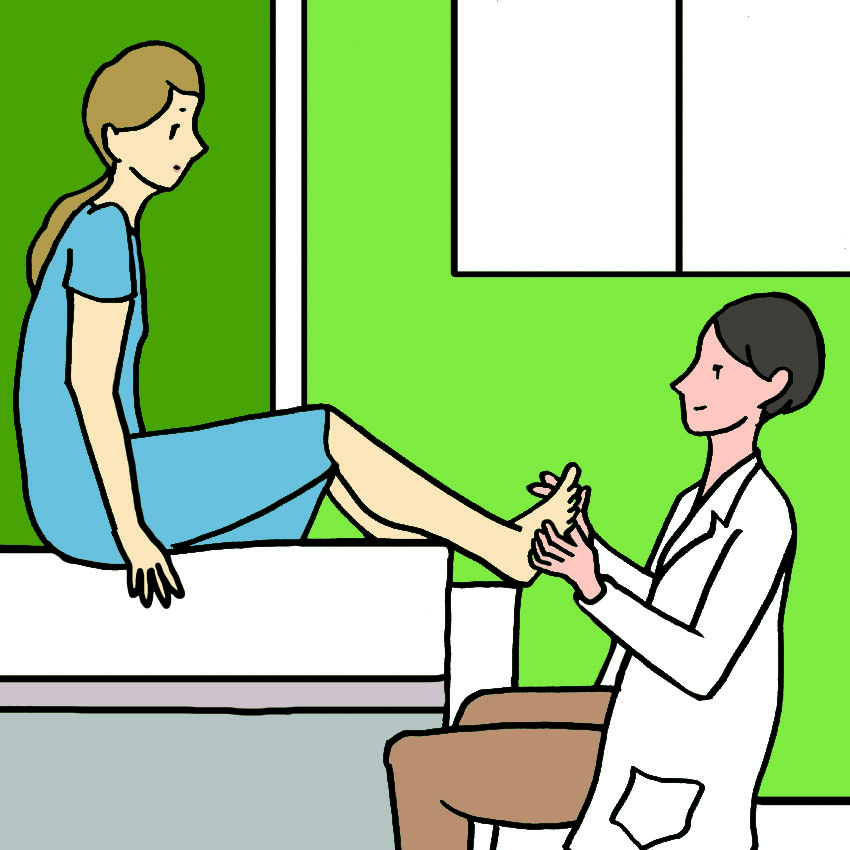
If your bunions are severe, you should consider going to a doctor to discuss treatment options, especially if you experience a lot of pain or can't find shoes that fit.
Please SHARE this article with anyone you know who might have bunions!




